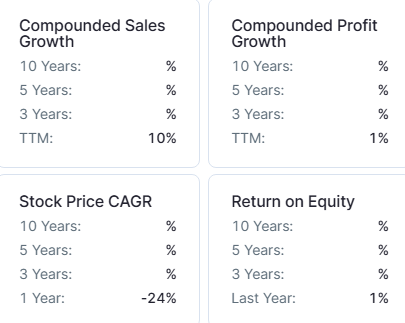Jio Financial Services Ltd. is a subsidiary of Reliance Industries; it was demerged as an independent entity and listed on the NSE and BSE on August 21, 2023. In this article, we will explore Jio Financial Services’ future growth potential and the Jio Financial Services share price target 2025 to 2050.
About Jio Financial Services Ltd.

Jio Financial Services Ltd. is a financial services company that focuses on lending, insurance, and digital payments. JFS aims to offer easy and affordable financial solutions to individuals and businesses across India. With strong backing from Reliance, the company is expanding its reach using technology and partnerships. Jio Financial Services competes with banks and NBFCs in providing loans, wealth management, and other financial products to customers.
Jio Financial Services Business Model
- Lending Business: Jio Financial Services earns money by giving loans to individuals and businesses. It charges interest on the borrowed money, which is a major source of income.
- Insurance Services: The company plans to offer life, health, and general insurance. Customers will pay premiums for these insurance policies, which will generate revenue.
- Digital Payments: Jio Financial Services generates revenue from digital payment services by charging transaction fees and commissions on online payments.
- Wealth Management: The company will provide investment and wealth management services, charging fees for customers who invest in mutual funds, stocks, and other financial products.
- Partnerships and Collaborations: JFS works with banks, NBFCs, and fintech companies to provide financial solutions. It earns commissions and fees from these partnerships.
Jio Financial Services Fundamental Analysis
| Stock Name | Jio Financial Services Ltd. |
|---|---|
| NSE Symbol | JIOFIN |
| Market Cap | ₹ 1,75,986 Cr. |
| 52W High | ₹ 376 |
| 52W Low | ₹ 199 |
| Stock P/E | 109 |
| Book Value | ₹ 194 |
| Dividend Yield | 0.00 % |
| ROCE | 1.47 % |
| ROE | 1.23 % |
| Face Value | ₹ 10.0 |
| Industry PE | 21.5 |
| Price to book value | 1.43 |
| Debt to equity | 0.03 |
| PEG Ratio | – |
| Quick ratio | 9.63 |

| Shareholders | March 2024 | March 2025 |
|---|---|---|
| Promoters | 47.12% | 47.12% |
| FIIs | 19.45% | 11.66% |
| DIIs | 12.50% | 14.21% |
| Government | 0.14% | 0.17% |
| Public | 20.77% | 26.83% |
| No. of Shareholders | 43,99,041 | 52,59,483 |
Key Factors Driving Jio Finance Future Growth
- Strong Reliance Support and Large Customer Base: Jio Financial Services benefits from Reliance Industries’ financial strength and access to millions of Jio users, Reliance Retail customers, and other businesses, helping it grow faster.
- Expanding Loan and Insurance Business: Jio Financial Services plans to increase its lending operations and enter the insurance market, offering health, life, and general insurance, which will create multiple sources of income.
- Growth of Digital Payments and Financial Inclusion: As India’s digital payment adoption increases and the government pushes for financial inclusion, Jio Financial Services can expand by providing simple and affordable banking and payment options.
- Use of Technology: Jio Financial Services is using advanced technology and artificial intelligence to improve its services, making it more efficient and attractive to customers.
- Partnerships with Banks and NBFCs: Jio Financial Services is forming partnerships with banks and other financial institutions to expand its services and reach more people.
- India’s Growing Economy: As India’s economy grows, the increasing demand for financial services from individuals and businesses will create massive opportunities for Jio Financial Services.
Pros of Jio Financial Services
- Strong Partnerships: Jio Financial Services has formed a 50-50 joint venture with BlackRock, the world’s largest asset manager, to offer asset management services in India. This collaboration combines Jio’s local market knowledge with BlackRock’s global expertise.
- Regulatory Approvals: India’s Securities and Exchange Board has granted the company in-principle approval to launch a mutual fund business.
- Payment Aggregator License: Its subsidiary, Jio Payment Solutions, has been approved by the Reserve Bank of India to operate as an online payment aggregator which allows the company to facilitate a wide range of electronic transactions.
- Debt-Free Company: Jio Financial Services is a debt-free company, which indicates its financial stability.
- High Cash Reserves: As of September 2024, Jio Financial Services has cash reserves of ₹1,30,791 Crores, which highlights its strong financial position and wise management.
- High Institutional Holding: As of December 2024, the FIIs hold 15.62% and DIIs hold 12.46% of the company, which shows that institutions have high confidence in the company.
- Price-to-Book (P/B) Ratio: As of February 21, 2025, the company’s P/B ratio stands at 1.09, indicating that the market price is slightly above its book value, which may suggest a reasonable valuation.
- Low P/B Ratio (Undervalued Stock): Jio Financial Services Price to Book Value (P/B) ratio is 1.43 which shows that its stock is trading close to its intrinsic value and may be undervalued.
- Debt Free Company: Jio Financial Services is almost a debt-free company with a debt-to-equity ratio of 0.03, which shows its financial stability.
- Increase in DIIs Holding: DIIs holding increased from 12.46% in December 2024 to 14.21% in March 2025, showing a positive outlook towards Jio Financial Services by the DIIs.
Cons of Jio Financial Services
- High Price-to-Earnings (P/E) Ratio: The company’s P/E ratio is 93.0, which is relatively high. This suggests that the stock may be overvalued, as investors are paying ₹93 for every ₹1 of earnings.
- Low Return on Equity (ROCE): Jio Financial Services 5-year average ROCE is 1.51%, which shows that it is not using shareholders’ funds efficiently to generate profits.
- Overvaluation Concern: Jio Financial Services stock is trading at a PE ratio of 109, which is relatively higher than the industry average of 21.5, which indicates that the stock is overvalued compared to its peers.
- Decrease in FIIs Holding: FIIs decreased their holding from 11.66% in March 2024 to 15.62% in December 2024.
Jio Financial Services Ltd Balance Sheet
| Particulars | March 2023 | March 2024 | March 2025 |
|---|---|---|---|
| Equity Capital | 2 | 6,353 | 6,353 |
| Reserves | 114,118 | 132,794 | 117,143 |
| Borrowings | 743 | 0 | 3,970 |
| Other Liabilities | 66 | 5,715 | 6,043 |
| Total Liabilities | 114,930 | 144,863 | 133,510 |
| Fixed Assets | 158 | 172 | 188 |
| CWIP | 38 | 3 | 7 |
| Investments | 108,141 | 133,292 | 118,910 |
| Other Assets | 6,593 | 11,395 | 14,405 |
| Total Assets | 114,930 | 144,863 | 133,510 |
By the end of 2025, the Jio Financial Services share price is expected to be around ₹380 in normal conditions. In a bear market, it might be ₹350, and in a bull market, it may go up to ₹450.
| Jio Financial Services Share Price Target 2025 | Rupees (₹) |
|---|---|
| 1st Target | 350 |
| 2nd Target | 380 |
| 3rd Target | 450 |
In 2026, the Jio Financial Services share price is expected to be around ₹450 in a normal situation. In a bear market, it might be ₹400, and in a bull market, it may cross ₹550.
| Jio Financial Services Share Price Target 2026 | Rupees (₹) |
|---|---|
| 1st Target | 400 |
| 2nd Target | 450 |
| 3rd Target | 550 |
According to our analysis, the Jio Financial Services share price is expected to be around ₹550 in 2027. In a bear market, it might be ₹500, and in a bull market, it may cross ₹700.
| Jio Financial Services Share Price Target 2027 | Rupees (₹) |
|---|---|
| 1st Target | 500 |
| 2nd Target | 550 |
| 3rd Target | 700 |
According to our analysis, the Jio Financial Services share price may trade near ₹700 by 2028; bearish conditions could pull it down to ₹600, while a strong bull run might lift it to ₹950.
| Jio Financial Services Share Price Target 2028 | Rupees (₹) |
|---|---|
| 1st Target | 600 |
| 2nd Target | 700 |
| 3rd Target | 950 |
In a normal situation, the Jio Financial Services share price is projected to be approximately ₹850 in 2029. In a bear market, the value may be as low as ₹750, while in a bull market, it may rise to ₹1200.
| Jio Financial Services Share Price Target 2029 | Rupees (₹) |
|---|---|
| 1st Target | 750 |
| 2nd Target | 850 |
| 3rd Target | 1200 |
In a normal situation, the Jio Financial Services share price is projected to be approximately ₹1000 in 2030. In a bear market, the value may be as low as ₹850, while in a bull market, it may rise to ₹1600.
| Jio Financial Services Share Price Target 2030 | Rupees (₹) |
|---|---|
| 1st Target | 850 |
| 2nd Target | 1000 |
| 3rd Target | 1600 |
By 2035, the Jio Financial Services share price is projected to be around ₹2000 under normal conditions. In adverse markets, the price could fall to ₹1700, while favorable conditions might push it up to ₹4800.
| Jio Financial Services Share Price Target 2035 | Rupees (₹) |
|---|---|
| 1st Target | 1700 |
| 2nd Target | 2000 |
| 3rd Target | 4800 |
Under normal conditions, the Jio Financial Services share price might hit ₹8000 by 2040. A bearish trend could lower it to ₹3400, whereas a bullish surge could raise it to ₹14,500.
| Jio Financial Services Share Price Target 2040 | Rupees (₹) |
|---|---|
| 1st Target | 3400 |
| 2nd Target | 8000 |
| 3rd Target | 14,500 |
In 2050, the Jio Financial Services share price is expected to be around ₹35,000 in a normal situation. In a bear market, it might be ₹13,600, and in a bull market, it may go up to ₹86,400.
| Jio Financial Services Share Price Target 2050 | Rupees (₹) |
|---|---|
| 1st Target | 13,600 |
| 2nd Target | 35,000 |
| 3rd Target | 86,400 |
| Years | Target Price |
|---|---|
| Jio Financial Services Share Price Target 2025 | ₹350 to ₹450 |
| Jio Financial Services Share Price Target 2026 | ₹400 to ₹550 |
| Jio Financial Services Share Price Target 2027 | ₹500 to ₹700 |
| Jio Financial Services Share Price Target 2028 | ₹600 to ₹950 |
| Jio Financial Services Share Price Target 2029 | ₹750 to ₹1200 |
| Jio Financial Services Share Price Target 2030 | ₹850 to ₹1600 |
| Jio Financial Services Share Price Target 2035 | ₹1700 to ₹4800 |
| Jio Financial Services Share Price Target 2040 | ₹3400 to ₹14,500 |
| Jio Financial Services Share Price Target 2050 | ₹13,600 to ₹86,400 |
Conclusion
Jio Financial Services has strong support from Reliance, a growing customer base, and plans to expand into lending, insurance, and digital payments. With India’s rising financial sector, the company has great growth potential. However, challenges like a high P/E ratio, low ROE, and declining FII holdings need to be considered. If Jio Financial Services continues to execute its plans well, it could see significant growth in the coming years. For latest updates, check Jio Financial Services official website.
Disclaimer
This article is for educational purposes only. It is not a stock recommendation and should not be treated as such. Please ask your financial advisor before making any investment decision.

